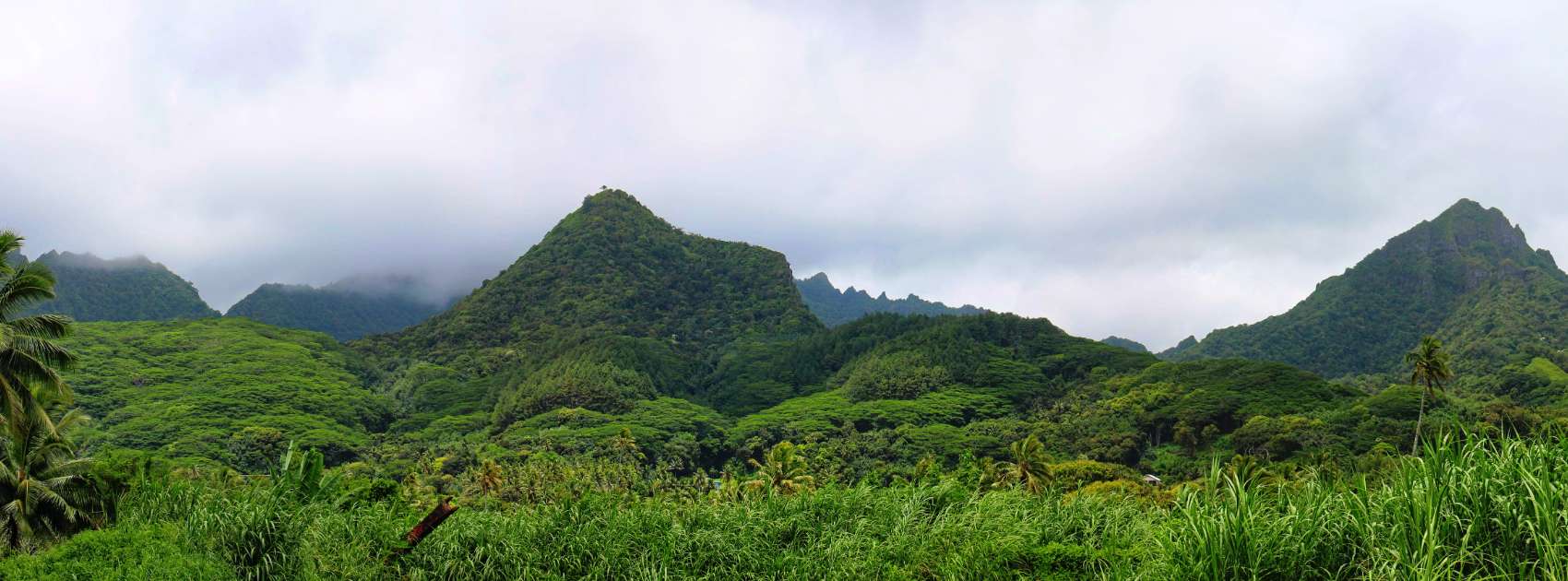Cook Islands
The Cook Islands are a beneficiary of the EU's Standard GSP. In recent years, the Cook Islands have only taken little advantage of the preferential market access provided by the GSP. In 2023, total imports from the Cook Islands amounted to €7.5 million, but no eligible products were imported using GSP preferential rates.
What is the GSP?
The Standard GSP targets developing countries that are classified by the World Bank as lower or lower-middle income countries and which do not have equal preferential access to the EU market through any other arrangement. Standard GSP beneficiary countries can benefit from duty suspension for non-sensitive products as well as duty reductions for sensitive products across approximately 66% of all EU tariff lines.

14.2k (2023)
Population
Parliamentary Democracy
Government
no data
GDP Growth
no data
Inflation
no data
GDP
Facts about the Cook Islands' economy
Island Economy
The Cook Islands are located in the South Pacific, which makes the access of international markets difficult. The small domestic market and limited natural resources, which primarily consist of fertile soil and marine resources, pose additional challenges to the economic diversification and social development of the islands.
Export Products
The export sector of the Cook Islands remains small and the most important export products of the Cook Islands are frozen fish and fish fillets.
Trade Partners
Recent reliable information about the Cook Islands' main trading partners is not available, but China and the US appear to be among the leading partners.
Economic Structure
The service sector, mainly driven by tourism, accounts for a large share of the Cook Islands' GDP. Industrial activities are limited to fishing, food processing and handicrafts. The agricultural sector employs about a third of the population of the Cook Islands and focusses on the cultivation of coconuts and citrus fruit for export.
Usage of GSP Preferences
About 2% of the Cook Islands' exports to the EU market were eligible for reduced tariffs granted under the Standard GSP in 2023. The islands did not take advantage of the preferential rates under the EU GSP.
Trade with the EU
Total trade with the EU amounted to €108 million in 2023.
Cook Islands and the EU
Imports from the Cook Islands by product section (2023, € million)
Imports from the Cook Islands over time (€ million)
COOK ISLANDS AND THE EU GSP
Economic Impact
2%
Share of the Cook Islands' exports to the EU that were eligible for preferences granted under the GSP.
0%
Since 2021, the Cook Islands have not made use of GSP preferences.
94%
Share of zero-duty imports from the Cook Islands. Most imports are duty-free under normal EU tariffs.
Preference utilisation and export diversification
EU imports from the Cook Islands (€ million)
Preference utilisation (%) vs. total eligible imports (in € million)
EU imports from the Cook Islands are small. Most of them are duty free in the EU, and hence the share of GSP-eligible imports is small. The Cook Islands did not use GSP preferences in 2023
The largest product sections under the GSP (€ million, 2023)
The only product section with notable GSP-eligible exports to the EU in 2023 was base metals, but as in previous years no preferences were used.
SUSTAINABLE DEVELOPMENT
As a beneficiary of the Standard GSP, the Cook Islands' preferential market access is not bound to the ratification of international conventions. The Cook Islands have ratified five out of the 15 international core conventions on human rights and labour standards listed in the GSP Regulation. In addition, the Cook Islands have ratified six conventions on environmental protection (out of 8 listed in the GSP Regulation) and two conventions (out of four listed ones) on good governance. The Cook Islands have also signed, but not ratified, the Cartagena Protocol on Biosafety.
Core international conventions on human rights and labour standards
Ratified
- Convention on the Elimination of All Forms of Discrimination Against Women (1981)
- Convention on the Rights of the Child (1990)
- Convention concerning Forced or Compulsory Labour, No 29 (1930)
- Convention concerning the Abolition of Forced Labour, No 105 (1957)
- Convention concerning the Prohibition and Immediate Action for the Elimination of the Worst Forms of Child Labour, No 182 (1999)
Not Ratified
- Convention on the Prevention and Punishment of the Crime of Genocide (1948)
- International Convention on the Elimination of All Forms of Racial Discrimination (1969)
- International Covenant on Civil and Political Rights (1976)
- International Covenant on Economic Social and Cultural Rights (1976)
- Convention Against Torture and other Cruel, Inhuman or Degrading Treatment or Punishment (1987)
- Convention concerning Freedom of Association and Protection of the Right to Organise, No 87 (1948)
- Convention concerning the Application of the Principles of the Right to Organise and to Bargain Collectively, No 98 (1949)
- Convention concerning Equal Remuneration of Men and Women Workers for Work of Equal Value, No 100 (1951)
- Convention concerning Discrimination in Respect of Employment and Occupation, No 111 (1958)
- Convention concerning Minimum Age for Admission to Employment, No 138 (1973)
Additional Conventions
- Montreal Protocol on Substances that Deplete the Ozone Layer (1987)
- Basel Convention on the Control of Transboundary Movements of Hazardous Wastes and Their Disposal (1989)
- Convention on Biological Diversity (1992)
- The United Nations Framework Convention on Climate Change (1992)
- Cartagena Protocol on Biosafety (2000) (signed)
- Stockholm Convention on Persistent Organic Pollutants (2001)
- Kyoto Protocol to the United Nations Framework Convention on Climate Change (1998)
- United Nations Convention against Illicit Traffic in Narcotic Drugs and Psychotropic Substances (1988)
- United Nations Convention against Corruption (2004)
EU-Cook Islands Bilateral Development Cooperation
DG INTPA
Access all info about EU-Pacific Islands Countries relations on the International Partnerships website.
